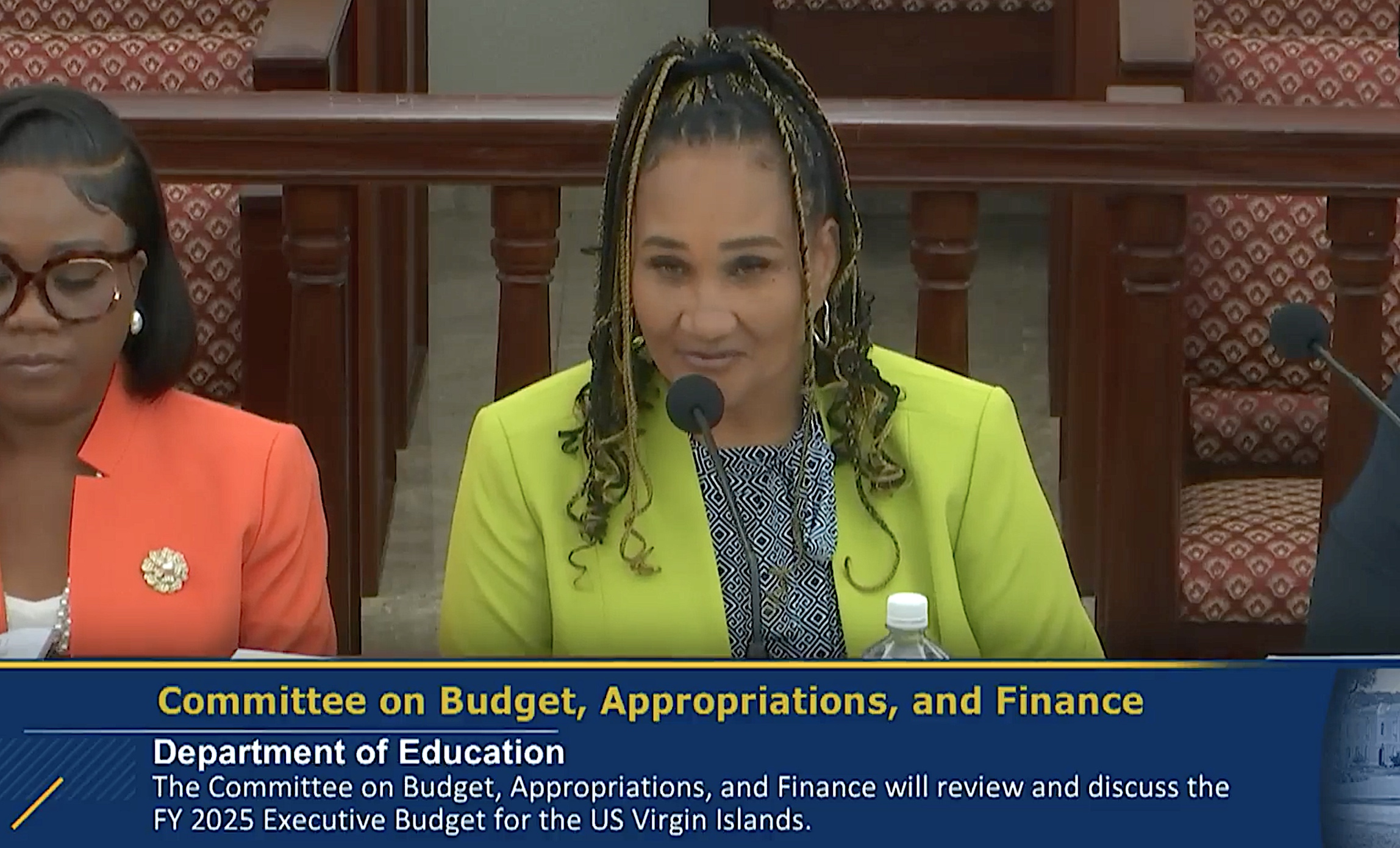
The Virgin Islands Education Department lost 77 key employees during the last school year and another 332 were eligible for retirement before the start of the upcoming school year, officials told the Legislature Monday.
From Oct. 1, 2023, to May 31, 2024, at least 53 department employees left the St. Croix school district, and 25 left the St. Thomas-St. John district, said Education Commissioner Dionne Wells-Hedrington at a meeting of the Senate’s Committee on Budget, Finance and Appropriations.
Although nearly 15 percent of Education Department employees will be eligible for retirement Sept. 1, only 23 of the 77 who left in the 2023 school year — 29 percent — retired. The vast majority of those who left the department resigned, many seeking work in a different area of government, Wells-Hedrington said. One employee was fired and two died.
Nearly 13.9 percent of the territory’s teachers and more than 36 percent of school administrators could retire Sept. 1 if they chose, she said. More than 33 percent of school nurses, 22 percent of counselors, 21 percent of librarians, nine percent of school monitors, and nearly 10 percent of paraprofessionals could retire at the beginning of the school year.
These paraprofessionals were filling in for the 19 teaching the department was short, she said.
In explaining their proposed $170,084,508 budget for the 2025 fiscal year, Education officials said $104,637,975 would go to personnel services and $51,735,067 for employee fringe benefits.
“Like other school districts across the nation, the Virgin Islands Department of Education continues to face challenges in filling teaching positions. According to data presented at this year’s Model Schools Conference, there are 36,000 teacher vacancies nationwide,” Wells-Hedrington said.
Teaching in the Virgin Islands presents further obstacles than in many mainland districts, she said.
“High cost of living in the territory, decline in local and national entrants into the teaching profession, the 11.5 percent deduction for the Government Employee Retirement System, and the inability to compete with other school districts offering incentives such as sign-on bonuses, 100 percent paid healthcare, paid rental expenses, childcare reimbursement, relocation packages, and referral programs,” Wells-Hedrington said.
There was also the heat to contend with. Some schools still didn’t have adequate air conditioning, she said. The department was working with VITEMA to mitigate effects of a high heat index projected for August.
Despite the challenges, 33 new employees were hired for the 2024-2025 school year, she said, 15 for the St. Croix district and 18 for St. Thomas-St. John: an English teacher, a psychologist, a foreign language teacher, a nurse, a vocational education teacher, two elementary education teachers, two math teachers, two science teachers, two physical education teachers, four social studies teachers, five music teachers — on for St. Croix — and 13 special education teachers.
A primary concern, Wells-Hedrington said, was managing and spending 21 federal grants totaling $216,998,365.74. Although the United States Department of Education and United States Department of Agriculture grants are vital to the territory’s schools, rules around how they are spent can make it difficult to disperse within time limits.
During the 2024-2025 school year, the department anticipated receiving approximately $32,683,124.74 in federal grants. Spending the money could be hindered by supply shortages that cause price hikes beyond approved limits. There’s also the time it takes to get orders filled and an overall lack of vendors to work with.
The Board of Education also presented its budget requests Monday, asking the Senate to approve $2,387,697 for fiscal year 2025.


